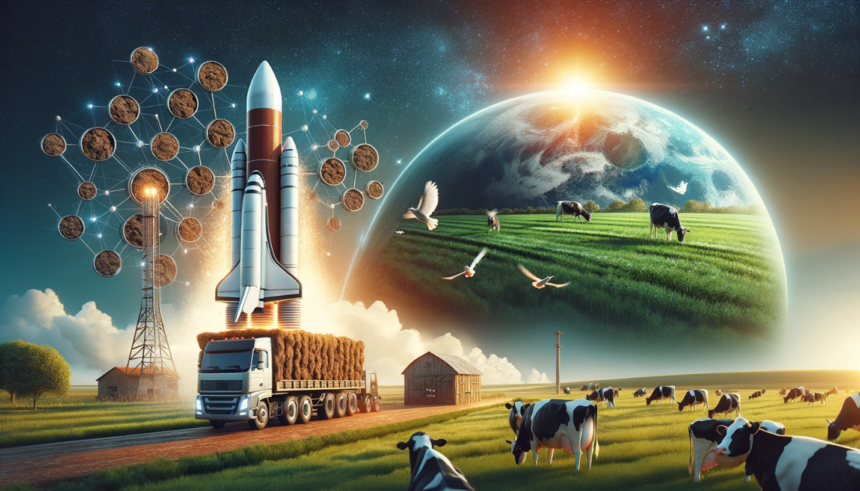Japan’s space industry, which has faced challenges with failed missions and rocket launch mishaps recently, may be on the brink of a groundbreaking development. Interstellar Technologies, a Japanese start-up, is experimenting with a novel rocket engine fueled by an unconventional source: cow dung.
In partnership with the industrial gas company Air Water, Interstellar Technologies has its sights set on launching satellites using biofuel derived entirely from cow manure. Their recent test in the town of Taiki saw the prototype engine eject a striking blue-and-orange flame for about 10 seconds. The fuel, termed “biomethane,” was produced using cow dung from local dairy farms.
Takahiro Inagawa, CEO of Interstellar Technologies, explained their vision of creating frequently launchable small rockets with minimal environmental impact. The use of biofuel aligns with this vision, potentially heralding a new era of eco-friendly rocket systems. Inagawa believes this approach could gain global traction.
Collaborating with Air Water, Interstellar Technologies taps into a network of local farms equipped to convert cow dung into biogas, which is then refined into rocket fuel. One participating farm, with around 900 dairy cows, produces over 40 tonnes of manure daily. This waste is processed into biogas, fertilizer, and recycled bedding, enhancing the farm’s income and sustainability.
Eiji Mizushita, the farm owner, expressed excitement at the prospect of his cows’ manure fueling rockets. He also highlighted the broader significance of natural renewable energy, urging government and societal attention towards its development.
Globally, cow manure-derived biogas is making strides, like powering buses in Indore, India. This climate-friendly fuel is a step towards mitigating the considerable environmental impact of agriculture, which, according to Greenpeace, accounts for 14% of global greenhouse gas emissions. While burning biogas releases greenhouse gases, it’s considered preferable to letting manure degrade naturally, which can lead to soil and water pollution.
















